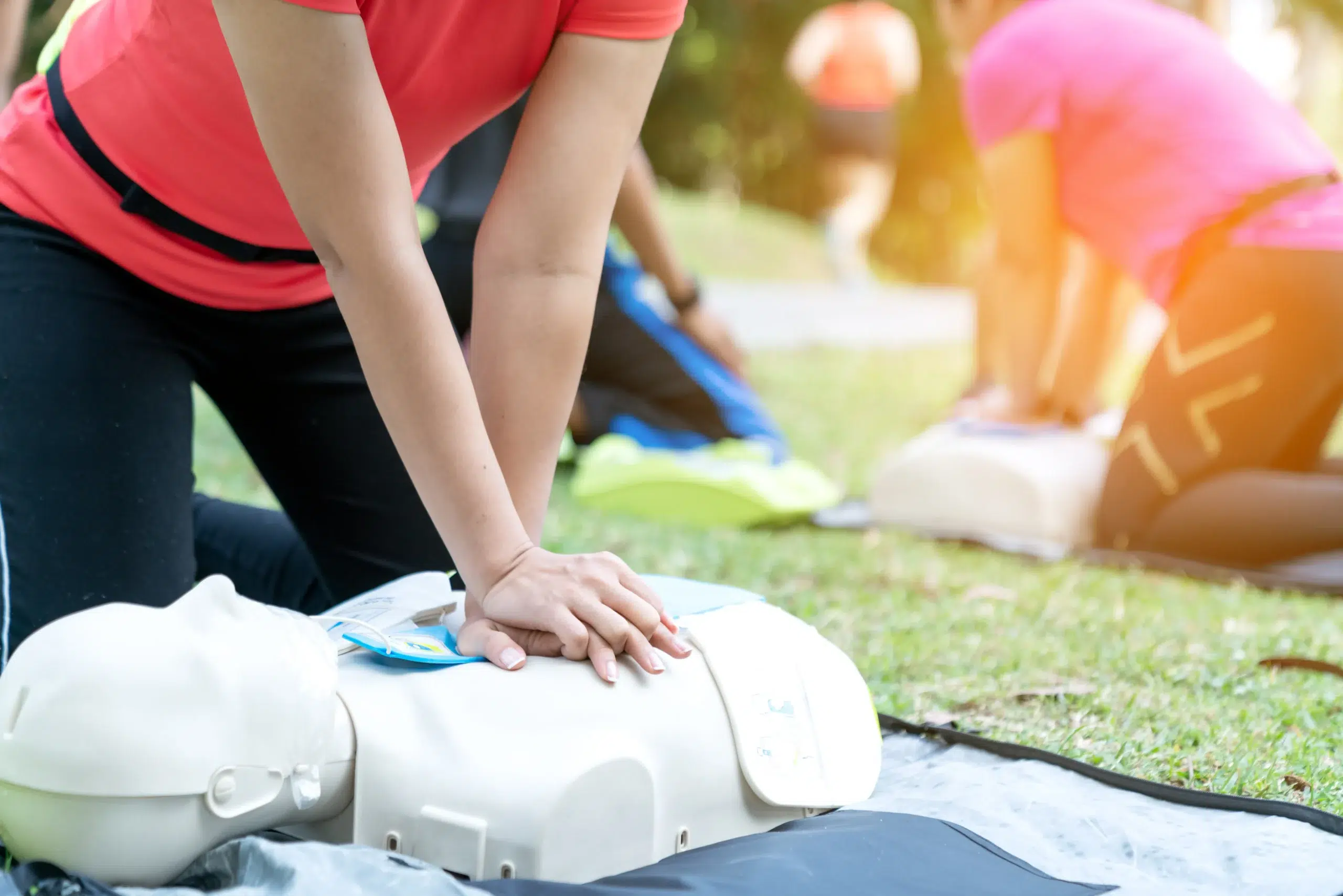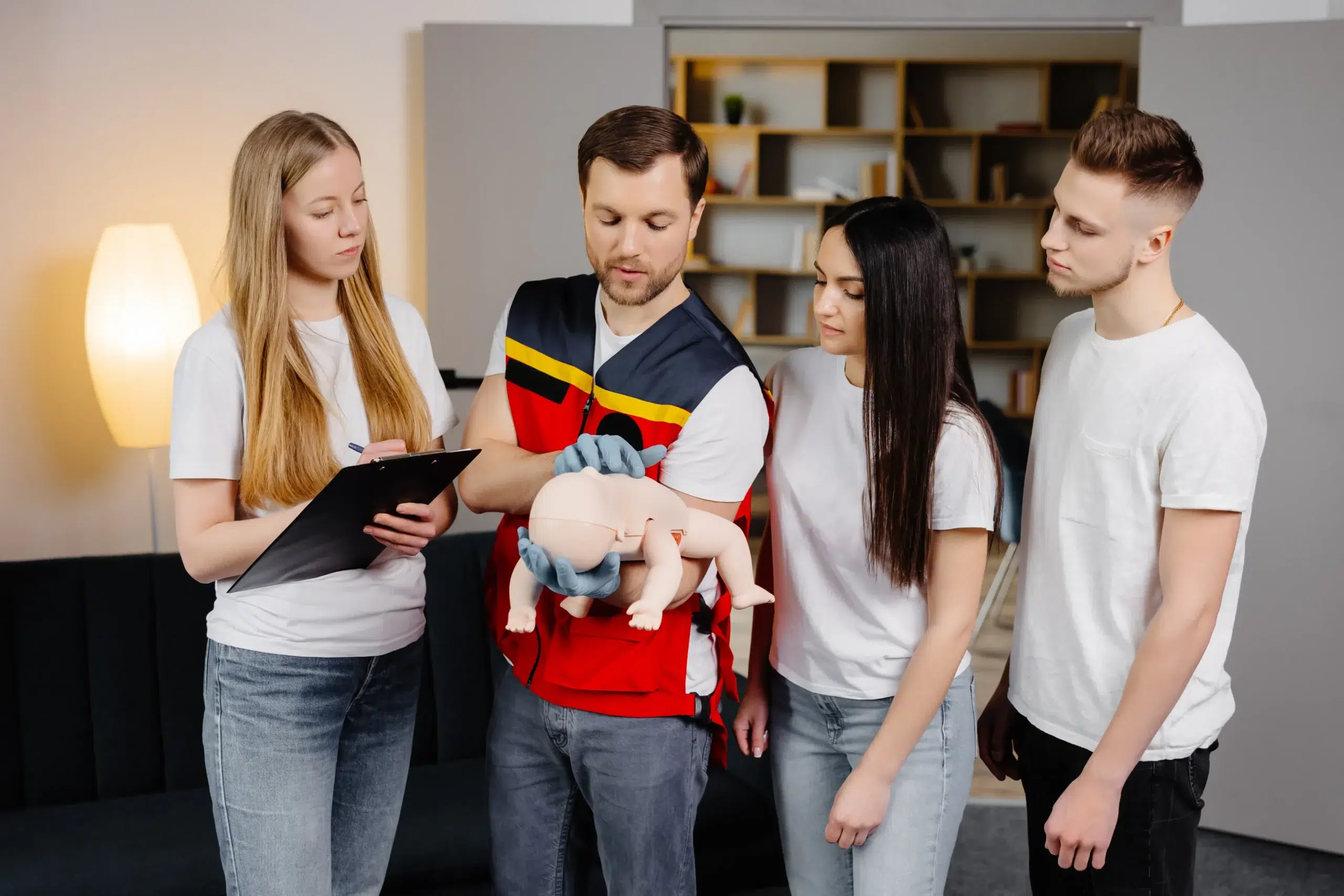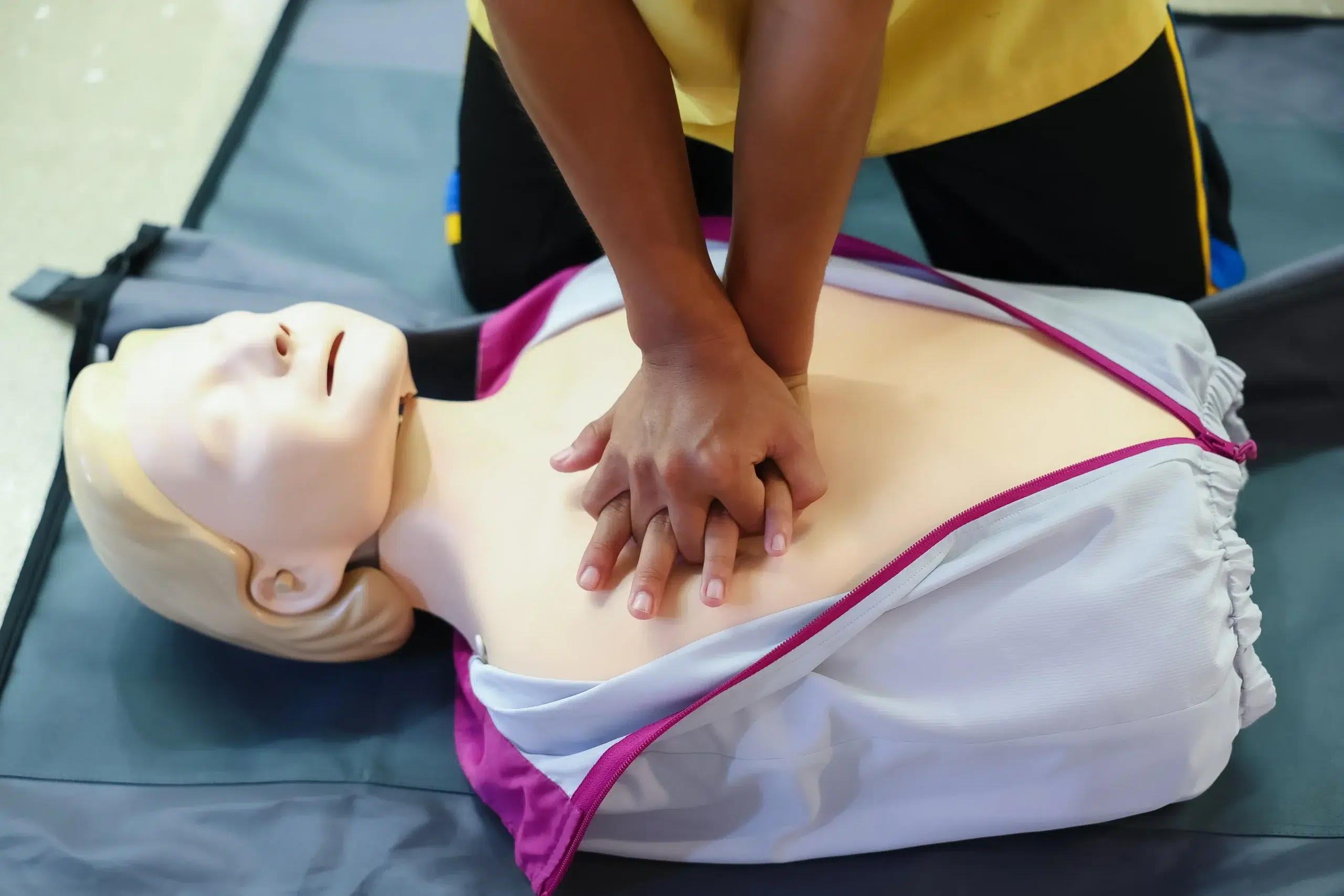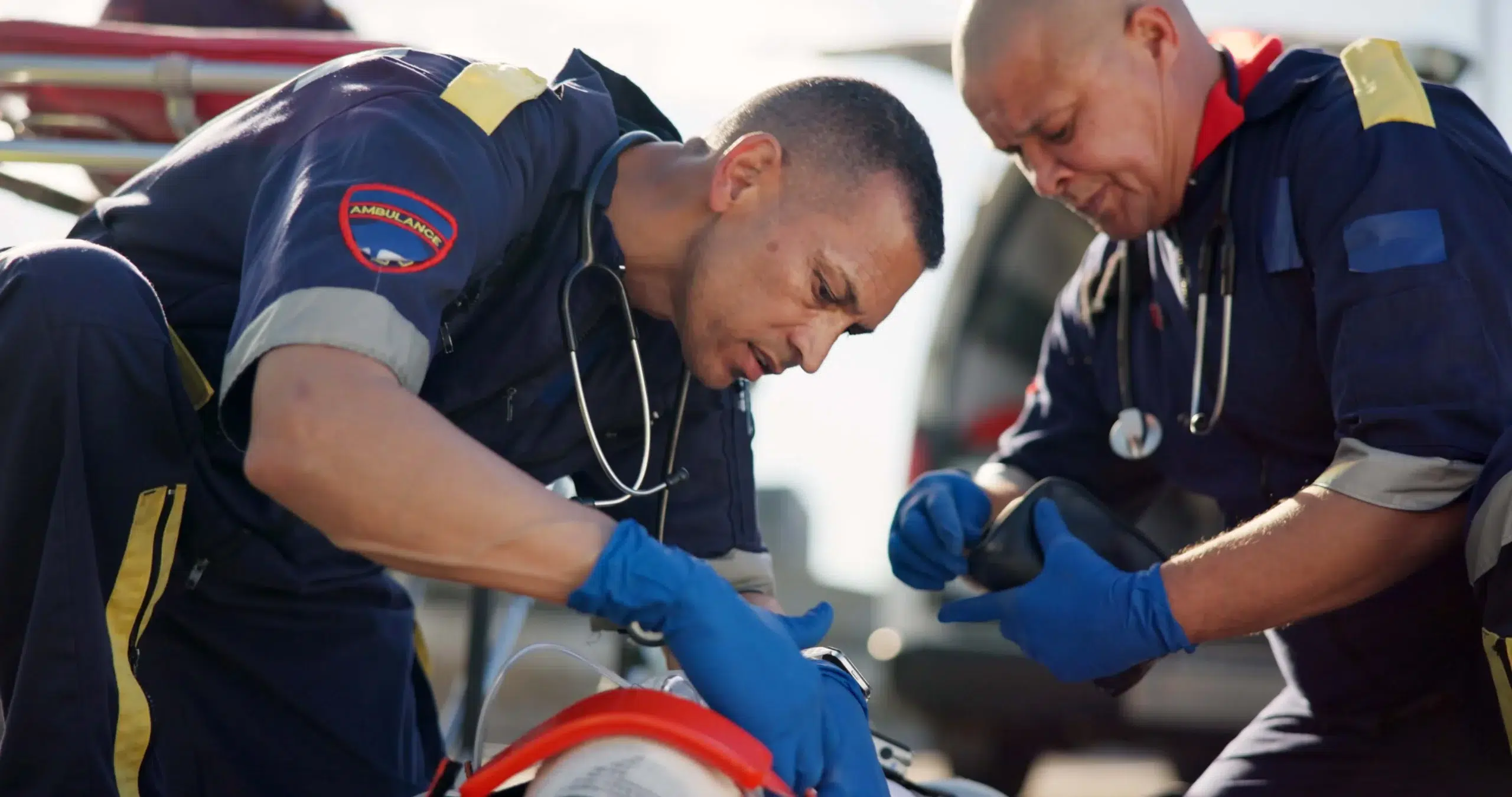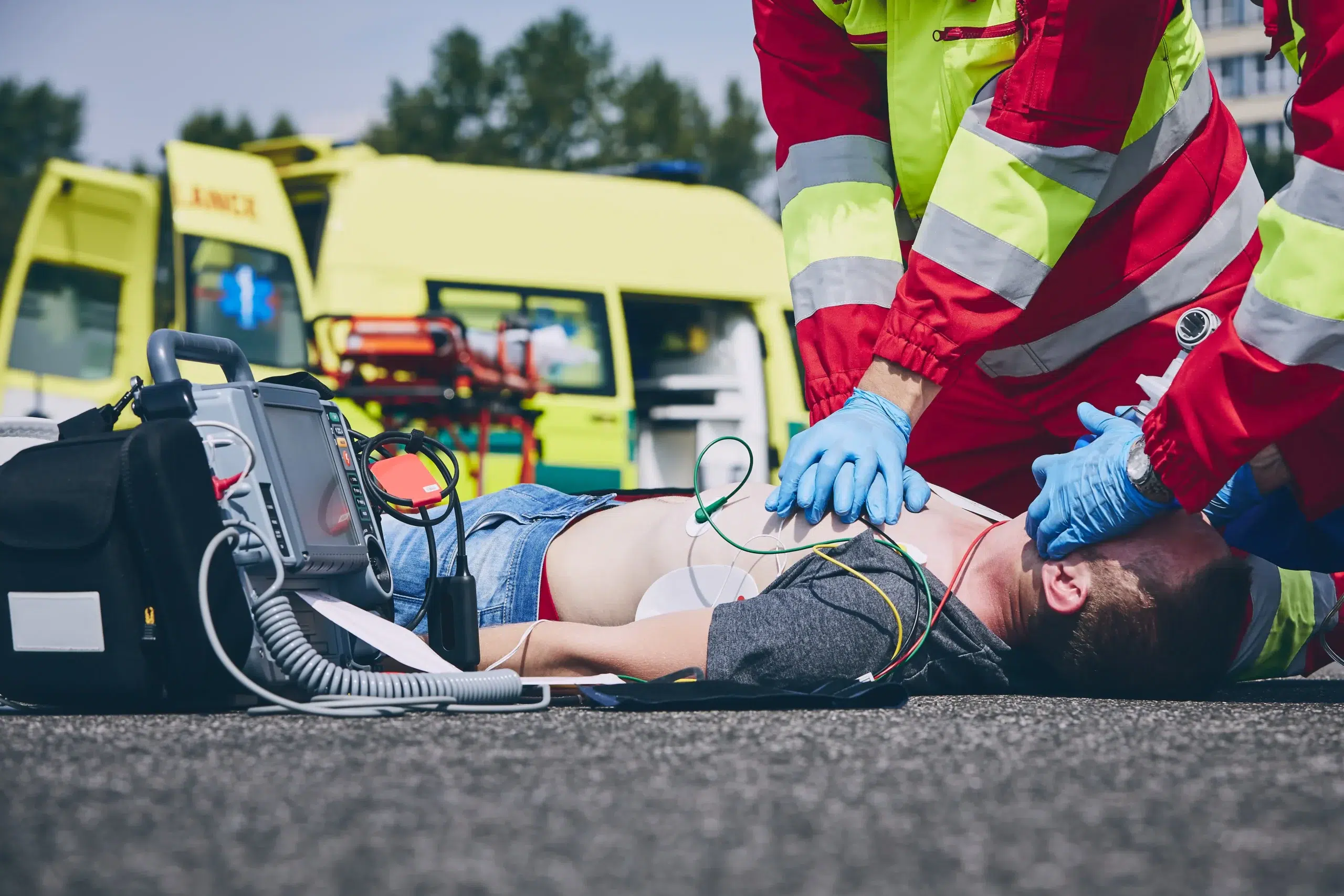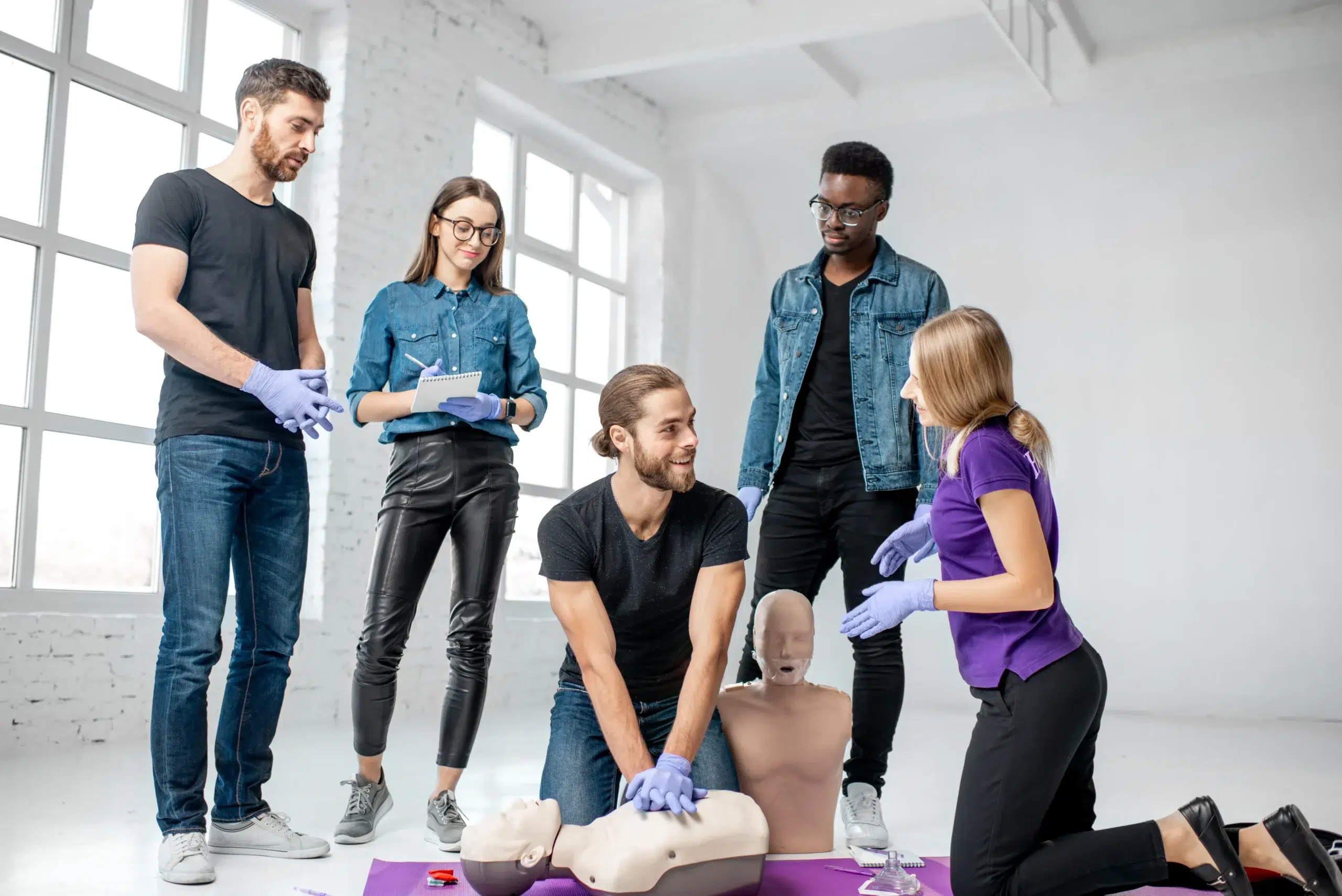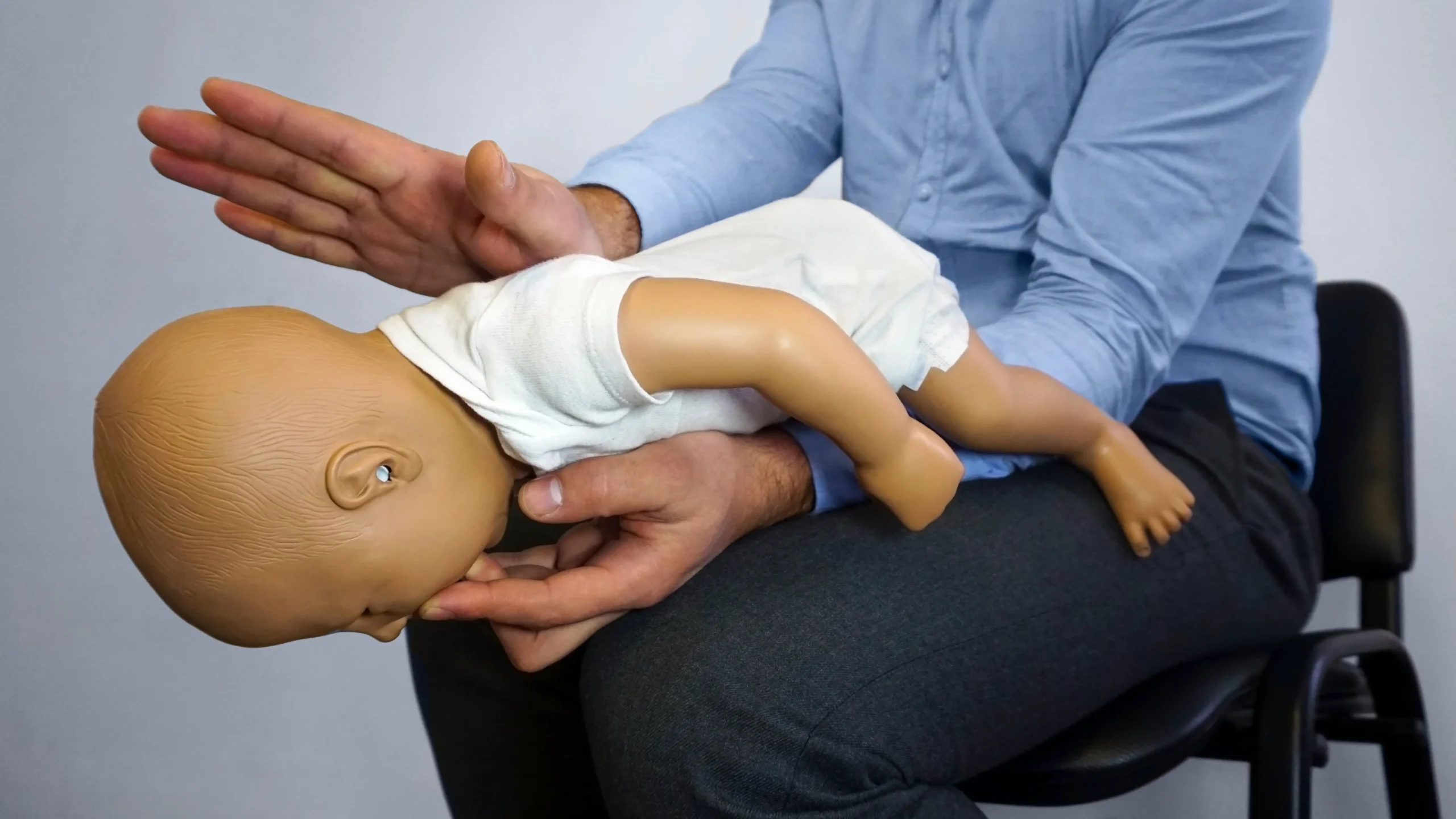Life is unpredictable. Emergencies can happen anytime, anywhere. Being prepared to respond effectively is empowering, and that’s where BLS certification comes in. If your certification is expiring or you’re simply looking to refresh your skills, finding a “BLS renewal near me” is a great first step. This guide will help you understand the importance of BLS renewal, navigate the process, and choose the right course to meet your needs. We’ll cover the key skills you’ll refresh, how to find the right course, and what to expect during the renewal process.
Key Takeaways
- Regular BLS renewal sharpens your life-saving skills. Refresher courses reinforce essential techniques like CPR and AED use, keeping you prepared for emergencies.
- Choosing the right course matters. Consider factors like in-person vs. online formats, instructor experience, and accreditation to find the best fit for your needs.
- Preparation is key for a smooth renewal. Review your current BLS knowledge, have your current certification card ready, and select a reputable training provider.
What is BLS Renewal & Why is it Important?
Knowing what BLS is and why renewing your certification matters can help you make informed decisions about your career and training. Regular BLS renewal ensures you’re prepared to provide high-quality care in emergencies.
What is BLS?
BLS stands for Basic Life Support. It’s the first level of medical care used in emergencies like heart attacks, strokes, near-drowning incidents, or choking. BLS certification is essential for healthcare professionals, including doctors, nurses, paramedics, and other medical personnel. It’s also valuable for lifeguards, fitness instructors, and anyone responsible for the safety of others. Essentially, BLS provides the foundational skills needed to respond effectively in a crisis. Learn more on our CPR and First Aid Certification Courses page.
Key Skills You’ll Refresh in a BLS Renewal Course
A BLS renewal course isn’t just a formality; it’s about honing life-saving skills. During your BLS course in Newark, you’ll refresh core techniques like chest compressions, rescue breaths, and using an AED. You’ll also review the latest guidelines for recognizing when someone needs BLS and how to provide effective care. These skills are constantly evolving, and a renewal course ensures you’re up-to-date. This refresher reinforces your knowledge and boosts your confidence in emergencies. Staying current with BLS techniques increases the chances of positive outcomes. Explore our information on RQI classes to learn about another important life-saving technique. We also offer discounted group CPR classes and have a low price guarantee.
Find the Right BLS Renewal Course Near You
Finding the right BLS renewal course takes a little research, but it’s worth it to ensure you receive high-quality training. Here’s how to get started:
Use Online Search Tools & Directories
Start with online search engines like Google, Bing, or DuckDuckGo. Enter keywords like “BLS renewal near me,” “BLS recertification classes,” or “AHA BLS renewal” to find potential providers in your area. Online directories specifically for healthcare training often let you filter by location, course type, and other criteria. BLS training provides essential life-saving skills, from CPR and AED use to airway management. Whether you’re a healthcare professional or not, BLS equips you to respond confidently in medical emergencies. Safety Training Seminars offers a range of American Heart Association (AHA) courses, including BLS certification.
Check Local Training Centers & Providers
Many hospitals, community colleges, and dedicated training centers offer BLS renewal courses. Check their websites or contact them to ask about schedules, costs, and course formats. Also check local community centers and fire departments, as they often host BLS training sessions. BLS renewal courses typically range from $50 to $150, depending on the provider, format, and included materials. Our BLS courses in Newark are a convenient and affordable option for those in the area.
Explore AHA Courses
The American Heart Association (AHA) sets the standard for BLS training. Look for AHA-certified training centers in your area. These centers adhere to the AHA’s rigorous standards, ensuring high-quality instruction and a recognized certification. Recertification in Basic Life Support has immense benefits, including improved resuscitation practices and techniques. You’ll gain proficiency in high-quality chest compressions and rescue breaths, and stay updated on how to determine if someone needs BLS. Ultimately, recertification increases the chances of saving lives.
Consider Red Cross Programs
The American Red Cross also offers BLS certification and renewal courses. Like the AHA, the Red Cross has established training standards and provides widely accepted certifications. Check their website or contact your local chapter for more information on course formats. They often offer in-person, online, and blended learning options to suit different learning styles and schedules. Blended learning experiences combine online coursework with in-person skills sessions.
Learn About Safety Training Seminars
Safety Training Seminars is committed to accessible and affordable BLS training. We offer a low price guarantee and convenient schedules, including weekend and evening classes. Our experienced instructors create a supportive learning environment, and our discount group classes are a great option for workplaces or groups. We also offer other essential life support courses, such as RQI classes.
Compare BLS Renewal Courses: Features & Costs
Choosing the right BLS renewal course involves understanding the different features and associated costs. Let’s break down the key factors to consider when comparing your options.
In-Person vs. Online
BLS renewal courses are offered in various formats. In-person BLS classes provide hands-on training and direct interaction with instructors. This format is great for those who learn best in a traditional classroom setting and value real-time feedback. Online courses offer flexibility and convenience, allowing you to renew your certification at your own pace. Blended learning combines online modules with in-person skills sessions, offering a balance of both. Consider your learning style and schedule when deciding which format works best for you.
Course Length & Schedule
Most BLS renewal courses are designed to be efficient, typically lasting around two to three hours. This timeframe allows you to refresh essential skills and review updated guidelines without a significant time commitment. When choosing a course, check the specific schedule and ensure it aligns with your availability. Our BLS courses in Newark offer various schedules to accommodate busy professionals.
Materials & Resources
BLS renewal courses cover core life-saving skills, including CPR, choking relief, and the use of AEDs. Many courses provide updated resources and materials, ensuring you’re up-to-date on the latest guidelines from the American Heart Association. Some providers may offer digital materials, while others provide physical manuals. Inquire about the included materials when comparing courses. At Safety Training Seminars, our CPR and First Aid certification courses include the most current resources.
Pricing & Fees
The cost of BLS renewal courses can vary depending on the provider, format, and location. In the San Francisco Bay Area, prices typically range from $50 to $150. Look for providers, like Safety Training Seminars, that offer a low price guarantee to ensure you’re getting a competitive rate. We believe that high-quality training should be accessible to everyone.
Group Rates & Special Offers
If you’re renewing your BLS certification with a group, inquire about discounted rates. Many providers offer special pricing for groups, making it a cost-effective option for workplaces or organizations. Discounted group CPR classes can be a great way to ensure everyone stays current on their certifications while saving money. Contact us to learn more about our group discounts and how we can tailor a course to your specific needs.
BLS Renewal: Prerequisites & Eligibility
This section covers the requirements for BLS renewal and what you need to do to prepare. Knowing the process beforehand makes renewing your BLS certification easier. At Safety Training Seminars, we’re here to support you through it.
Certification Requirements
Your American Heart Association (AHA) BLS certification is valid for two years. Plan to renew within this timeframe. Check your card’s expiration date and mark your calendar to give yourself plenty of time to complete your BLS renewal course. While you can sometimes renew within 30 days after expiration, it’s best to avoid a lapse in your credentials. Staying current with your BLS skills is crucial for providing effective care. Our BLS courses in Newark make it easy to stay up-to-date.
Skills Assessments & Prep
The BLS renewal process involves a few key steps. You’ll select a course—whether online or in-person, complete the training, and pass the required exam. Once you’ve passed, you’ll receive a new BLS certification card, valid for another two years. The BLS Renewal course covers essential life-saving skills and the most current AHA guidelines. It’s a refresher on high-quality CPR, using an AED, and providing relief for choking victims. The course emphasizes hands-on practice to build confidence and competence in these critical skills. Take advantage of our low price guarantee and flexible scheduling options. We also offer discounted group classes for businesses and organizations.
Choose the Right BLS Renewal Provider
Finding the right BLS renewal provider is crucial for a high-quality learning experience. Here’s what to consider when making your decision:
Accreditation & Certification
First, confirm your BLS renewal provider is accredited by a recognized organization like the American Heart Association (AHA). AHA-accredited providers offer courses aligned with the latest CPR and first-aid guidelines, ensuring your training meets industry standards. Safety Training Seminars, for example, offers a range of AHA-certified courses, including BLS certification and renewal. This accreditation ensures your training is current and recognized by employers and healthcare institutions.
Instructor Qualifications
Experienced, certified instructors make a big difference in your learning. Look for providers with instructors who are not only certified but also have practical experience. Whether you’re a nurse, physician, or paramedic, a qualified instructor can offer valuable insights and real-world scenarios to enhance your understanding. Check the provider’s website or contact them to inquire about instructor credentials and experience. A strong instructor can make your BLS renewal course more engaging and effective.
Course Reviews & Feedback
Reading reviews from past students can give you valuable insights into a provider’s strengths and weaknesses. Look for reviews that mention the quality of instruction, course materials, and overall learning experience. Positive feedback about the practical skills taught, such as CPR, AED use, and airway management, can give you confidence in the provider’s ability to prepare you for real-world emergencies. You can often find reviews on the provider’s website, social media pages, or third-party review platforms.
Post-Course Support
Consider what kind of support a provider offers after you complete your BLS renewal course. Some providers offer online resources, refresher materials, or access to a community of learners. This ongoing support can be valuable for staying up-to-date on the latest BLS guidelines and best practices. If you prefer online learning, many institutions offer online BLS renewal courses, providing flexibility and convenience. Choose a provider that offers the level of post-course support that best suits your needs.
Prepare for Your BLS Renewal Course
Getting ready for your BLS renewal is straightforward. Here’s what you need to know:
Refresh Your Skills
Your BLS skills are essential for responding to medical emergencies. A renewal course reinforces these skills, ensuring you’re prepared to provide high-quality CPR and other life-saving techniques. You’ll review how to recognize someone needing BLS, practice giving effective chest compressions and rescue breaths, and learn the latest resuscitation practices. These refreshed skills can significantly increase the chances of positive outcomes in emergencies. For more information on the benefits of recertification, check out this helpful resource on BLS recertification benefits.
What to Bring
Before heading to your BLS renewal course, make sure you have your current (or recently expired) AHA BLS CPR card. This confirms your previous training and eligibility for the renewal. Providers like Safety Training Seminars offer convenient BLS renewal courses in Newark and surrounding areas. Check with your chosen provider for any specific requirements.
Certification Process & Validity
BLS certification is valid for two years, with no grace period after expiration. Plan to renew within that timeframe. The renewal process involves completing a course, passing an exam, and receiving a new certification card. You can renew your certification up to 30 days after it expires, but staying current is always recommended. The process is similar for both online and in-person courses: complete the training, pass the exam, and receive your updated credentials. Learn more about renewing your BLS certification.
Get the Most Out of Your BLS Renewal
Getting your BLS certification renewed isn’t just a checkbox; it’s a real opportunity to level up your lifesaving skills. Here’s how to make the most of it:
Real-World Application
Your BLS renewal course should focus on practical training that you can use in real-life emergencies. Look for courses that emphasize hands-on practice and simulations of realistic scenarios. This approach ensures you’re not just memorizing steps, but truly understanding how to apply your skills effectively under pressure. Our BLS courses prioritize this hands-on, practical approach, preparing you to confidently respond to emergencies.
Continuing Education
BLS renewal isn’t just about maintaining your certification—it’s about continuing your education. Each renewal is a chance to refine your technique, learn updated guidelines, and improve the quality of care you provide. A good renewal course will cover improvements in resuscitation practices, techniques for high-quality chest compressions and rescue breaths, and the latest methods for assessing someone’s need for BLS. These updates can significantly increase the chances of positive outcomes in emergencies. For more insights on the benefits of recertification, check out this informative article on BLS recertification benefits.
Stay Up-to-Date on BLS Guidelines
Staying current with the latest BLS guidelines is crucial for providing effective care. Guidelines for procedures like CPR, AED use, and airway management are regularly updated based on the latest research and best practices. Your BLS renewal course should cover these updates, ensuring you’re equipped with the most current knowledge and techniques. This article on the BLS renewal process offers a helpful overview of what to expect. By prioritizing these updates, you’ll be better prepared to respond effectively and confidently in critical situations.
Related Articles
- BLS Renewal in San Jose: Your Complete Guide – Newark CPR Classes
- Find BLS Training Near Me: Top Providers & Courses – Newark CPR Classes
- BLS Certification in San Jose: Your 2024 Guide – Newark CPR Classes
- BLS Courses in San Jose: The Complete Guide – Newark CPR Classes
- HeartCode BLS Fremont: Your Certification Guide – Newark CPR Classes
Frequently Asked Questions
How often do I need to renew my BLS certification? American Heart Association BLS certifications are valid for two years. It’s best to renew before your card expires to avoid any lapse in your credentials.
What if my BLS certification has already expired? While some providers allow renewal within a short grace period (often 30 days) after expiration, it’s always recommended to renew before your certification lapses. Check with your chosen provider for their specific policy.
What’s the difference between online and in-person BLS renewal courses? Online courses offer flexibility, allowing you to learn at your own pace and convenience. In-person classes provide hands-on training, direct interaction with instructors, and real-time feedback. Blended learning combines online modules with in-person skills sessions. Consider your learning style and schedule when choosing a format.
How much does a BLS renewal course cost? Costs vary depending on the provider, location, and course format. In the San Francisco Bay Area, prices typically range from $50 to $150. Look for providers offering a low price guarantee or group discounts.
What should I look for when choosing a BLS renewal provider? Choose a provider accredited by a recognized organization like the American Heart Association (AHA). Check instructor qualifications, read reviews from past students, and consider the post-course support offered. A quality provider will offer up-to-date training aligned with the latest guidelines, experienced instructors, and resources to support your continued learning.
